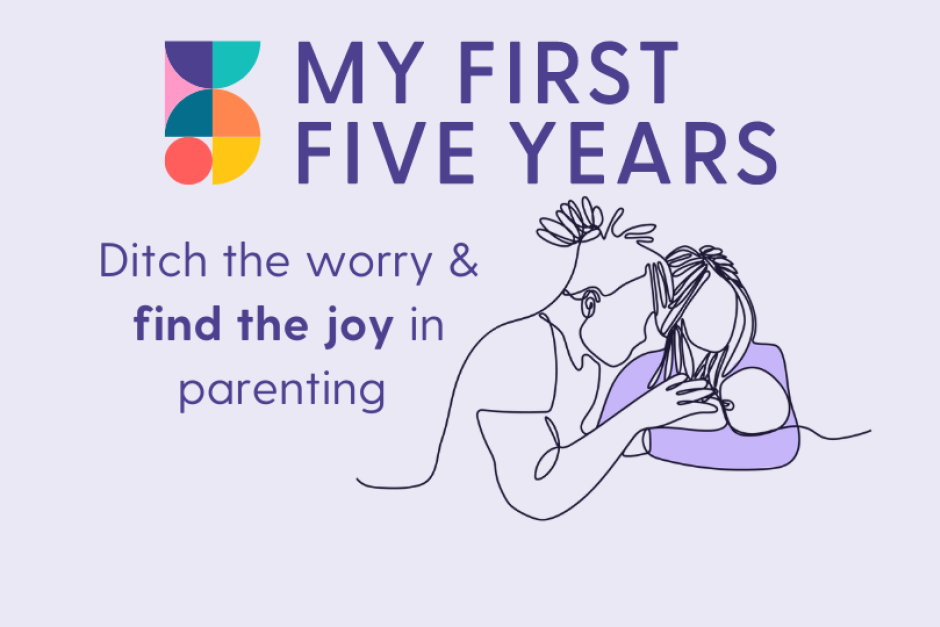Worried about bonding with your baby? Find out why you're more prepared than you ever imagined, an our top tips for when it feels hard.
One of the many incredible things that happens when you become a parent is hidden so well you might never know about it at all. Your brain will change and adapt – developing and refining the areas that will support you to bond with and take care of your baby. Read on to find out about this incredible biological adaption new parents experience, and get expert tips on how to nurture that bond from the start.
There is a huge amount of information out there about the ways you and your baby will need to form a strong attachment relationship, and it can seem overwhelming to work out how, exactly, you can do this – especially running on less sleep than ever before.
Feel reassured that your brain is working on helping you, without you even realising anything is changing.
Scientists talk about brain 'plasticity', meaning that our brain structures can change throughout our lifetime. There are periods when our brains demonstrate particular fluctuations, and one of the times that this occurs is when we become new parents.
Parents of newborns show a high level of variation in the part of the brain that helps us to process emotions, in particular, increased levels of oxytocin, sometimes known as the bonding or ‘cuddle’ hormone.
These changes help you and your baby to form a deep connection – an emotional bond which helps you respond to their cues.
Brain changes are different for mothers and fathers, but the consistent finding is that being a key caregiver for a newborn baby will change your brain!
Research[1] has found that for mothers who gave birth, brain scans showed changes to the amount of grey matter in the areas of the brain thought to link to social cognition (how our brains process and understand information about our social experiences, and about other people) and theory of mind (the understanding that other people think differently to you).
Both of these areas could be seen to impact the process of bonding with your newborn, and the researchers believe the changes in the brain are a sign that your body is preparing those areas to become more efficient in anticipation of meeting your baby.
For fathers, research has shown that they experience a dip in testosterone and cortisol in the early weeks of fatherhood, and an increase in hormones such as oxytocin and oestrogen, all of which is believed to be in order to support them in bonding with their baby.
A 2014 study[2] has also shown brain changes in new fathers, with changes to the grey matter seen in sears of the brain linked to nurturing, empathy and attachment showing more grey and white matter forming over the first few months of fatherhood.
You can find lots more information about the science behind child development – and becoming a parent – in the My First Five Years app, where we share the latest research alongside personalised development information about your child, to help you find and embrace the joyful side of parenting.
So, what if despite all this you don’t feel confident about bonding, or find it doesn’t come ‘naturally’ to you? Here are some practical ways to build on your attachment relationship.
Parent-baby bonding doesn't always happen at first sight; for some parents, it takes a little while to develop. However, if you have any concerns about your feelings of connection, talk it through with your health visitor or another health professional who is working with your family.
Attachments formed in early childhood are great for supporting development across many areas. There are lots of ways that you can build a secure attachment with your baby to help this,[3] for instance, listening to their unique cues or spending time singing, talking and playing with your baby from birth.
It's great to use the opportunities in your baby's day-to-day life to build your attachment. During feeds (bottle or breast), pay attention to your baby's gaze, and take the time to talk to your baby during this time; simply saying what is happening enables them to grow more and more familiar with your voice.
Another good time could be during nappy-changes, where, similar to during feeds, you could narrate, talk to your baby or even sing to them. When you hear your baby begin to make sounds, they may be soothed and comforted by hearing you repeat these back to them.[4]
If you want to receive more information and advice about the season of parenting you’re currently experiencing, or discover more about what your child is learning right now, you can find all this and more in the My First Five Years app. Sign up now for a free 14-day trial and see what you discover about your child, or yourself.
References:
[1] Hoekzema, E., Barba-Müller, E., Pozzobon, C., Picado, M., Lucco, F., García-García, D., Soliva, J. C., Tobeña, A., Desco, M., Crone, E. A., Ballesteros, A., Carmona, S., & Vilarroya, O. (2017). ‘Pregnancy leads to long-lasting changes in human brain structure’. Nature neuroscience, 20(2), 287–296. https://doi.org/10.1038/nn.4458
[2] Kim, P., Rigo, P., Mayes, L. C., Feldman, R., Leckman, J. F., & Swain, J. E. (2014). ‘Neural plasticity in fathers of human infants’. Social neuroscience, 9(5), 522–535. https://doi.org/10.1080/17470919.2014.933713
[3] Bowlby J. (1969). Attachment. Attachment and loss: Vol. 1. Loss. New York: Basic Books.
[4] Lawrence Robinson, Joanna Saisan, M.S.W., Melinda Smith, M.A., and Jeanne Segal, Ph.D.. (2020). Building a Secure Attachment Bond with Your Baby. Available: https://www.helpguide.org/articles/parenting-family/building-a-secure-attachment-bond-with-your-baby.htm.






Leave a Comment: